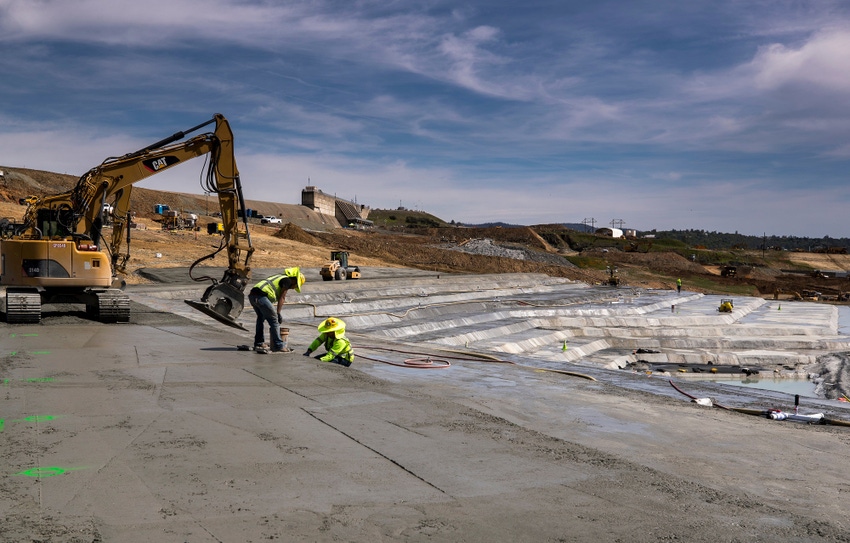
The Federal Emergency Management Agency reportedly told two California congressman that an unfavorable independent review of the state Department of Water Resources' management of the Oroville Dam may jeopardize federal reimbursement for the dam's reconstruction.
U.S. Reps. Doug LaMalfa, a Republican, and John Garamendi, a Democrat, say FEMA officials responded to a letter they sent in February seeking clarification on whether the state's perceived mismanagement of the dam could affect funding. The state has asked for 75 percent of the two-year project's estimated $870 million price tag, with the State Water Project contractors paying the rest.
FEMA has noted that in past disasters where there was a “lack of maintenance,” they only had the legal authority to provide reimbursements for work to bring facilities back to their “pre-disaster design," LaMalfa and Garamendi explain. In Oroville's case, that would merely "return the spillways to the same condition that played a role in causing the disaster in the first place," LaMalfa contends.
The two issued a joint news release on May 4 stating that FEMA "will evaluate the Independent Forensic Team report as part of their determination for federal reimbursement for Oroville Dam spillway repairs."
"FEMA also clarified that DWR’s prior mishandling of Oroville Dam could jeopardize federal reimbursement," LaMalfa added in a statement. "Congressman Garamendi and I will be seeking further information from FEMA regarding their timeline for making such a decision.”
DWR spokeswoman Erin Mellon told Western Farm Press late May 4 that "DWR will continue to submit reimbursement claims to FEMA until they provide direction otherwise."
FEMA's media office did not immediately respond to an email seeking comment.
A poor review
The legislators' inquiries came after a forensic team commissioned to study the dam’s near-failure issued a 584-page report in January that largely blames a culture of complacency within the DWR that insulated the agency from access to industry knowledge and technical expertise to safeguard the dam and its mile-long spillway.
“Obviously, we took that very seriously,” Mellon told Western Farm Press in April, adding that designs for the reconstruction effort reflect an effort to prevent potential physical causes of last year’s emergency from happening again.
She noted the agency’s newly appointed director, Karla Nemeth, will oversee a restructured executive team that will include a new deputy director for flood management and dam safety. Further, Gov. Jerry Brown last year ordered additional evaluations of dams whose spillways are similar to Oroville’s, she said.
Mellon added that the agency has also taken to heart the forensic team’s criticism of the department’s “silos” and “trying to break those down.
“A lot of that is an organizational effort that is well underway,” she said in April. “Part of it includes the new executive team addressing how to better integrate teams within the department as well as externally.”
Assessing needs
For Oroville, the DWR is about to kick off a comprehensive needs assessment “to see what we need to do differently in our operation of the structures,” she said.
“A lot of dam owners are doing similar efforts in their world as well,” she said.
Lake Oroville is the chief reservoir for the State Water Project, whose contractors irrigate about 750,000 acres of Central Valley farmland and serve more than 26 million customers, according to the project’s website. The dam’s near-failure amid heavy storms in February, 2017, prompted the reconstruction project, which is expected to take two years and cost $870 million.
About the Author(s)
You May Also Like






